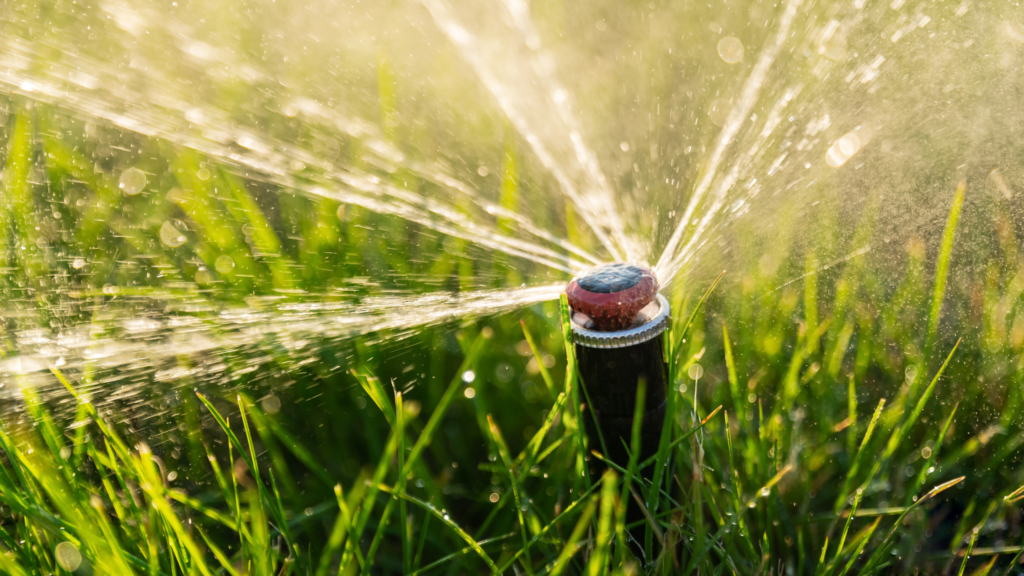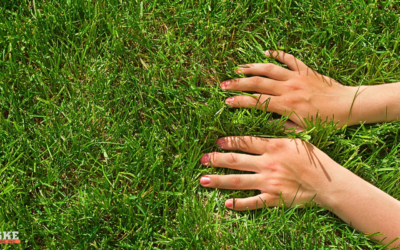A well-maintained lawn is the crown jewel of any home, providing a lush and inviting outdoor space. Proper watering is one of the most critical aspects of lawn care, as it directly impacts the health and appearance of your grass. While it might seem like a simple task, knowing the best time to water your lawn can make all the difference between a vibrant, thriving lawn and a lackluster one. In this blog, we’ll delve into the science and secrets behind watering your lawn at the right time for optimal results.
The Science Behind Lawn Watering
Understanding the science of lawn watering is crucial to grasp the significance of timing. Water is vital for plant growth, as it is responsible for facilitating nutrient uptake and photosynthesis. The roots of grass absorb water from the soil, but they also require oxygen to survive. Overwatering can lead to suffocation of the roots, while underwatering can cause stress and weaken the grass.
Best Time to Water: Early Morning
When it comes to watering your lawn, the early bird gets the worm. The best time to water your lawn is in the early morning, ideally between 4 a.m. and 9 a.m. During this period, the temperatures are cooler, and the sun is not yet at its peak, reducing water evaporation. Several advantages of morning watering include:
- Minimizing Water Loss: Watering in the early morning reduces water loss due to evaporation. When you water later in the day, especially during the hottest hours, a significant portion of the water evaporates before it can be absorbed by the grass roots.
- Preventing Disease: Watering in the morning allows the grass blades to dry quickly, which helps prevent the development of lawn diseases caused by prolonged moisture on the foliage. Fungal diseases, such as powdery mildew, thrive in damp conditions, so morning watering is a preventive measure.
- Boosting Growth: Morning watering provides grass with the moisture it needs to start its day. The grass will be able to absorb the water and nutrients efficiently, promoting healthy growth and overall resilience.
Alternate Timing: Late Afternoon/Early Evening
If watering in the morning is not feasible due to work or other commitments, the second-best time to water your lawn is during the late afternoon or early evening, between 4 p.m. and 7 p.m. While this time is not as ideal as the early morning, it still offers some benefits:
- Cooler Temperatures: Late afternoon and early evening temperatures are cooler than midday, reducing the risk of water evaporation.
- Recovery Time: Watering in the late afternoon allows the grass to recover from the heat stress experienced during the day. It can rejuvenate the lawn and prepare it for the night.
Avoiding Nighttime Watering
Watering your lawn at night, especially just before sunset or after dark, is generally not recommended. Although it might seem convenient, nighttime watering can lead to various issues, including:
- Fungal Growth: Grass that remains wet throughout the night is more susceptible to fungal growth, which can damage the lawn over time.
- Inefficient Absorption: With lower temperatures at night, the grass absorbs water at a slower rate. This can lead to excessive moisture on the surface and potential root problems.
Watering your lawn at the right time is an essential aspect of maintaining a healthy and beautiful outdoor space. By understanding the science behind lawn watering and the significance of timing, you can ensure that your lawn receives the hydration it needs to flourish. With proper watering practices, your lawn will thrive, providing you and your family with a lush, green oasis to enjoy throughout the seasons.
What Madison Homeowners Should Know About Wisconsin Grass Types
Wisconsin’s climate presents unique challenges and opportunities when it comes to maintaining a lush, green lawn. Madison homeowners need to choose the right grass type to ensure their lawn stays healthy through the state's cold winters and warm summers. With...
New Year, New Lawn: Resolutions for a Healthier Yard in 2025
The start of a new year is the perfect time to set goals—not just for yourself but for your lawn as well! As we welcome 2025, it’s the ideal moment to think about how you can make your yard healthier, greener, and more vibrant in the months ahead. Whether you’re a...
The Lawn Lover’s Holiday Gift Guide: Perfect Presents for Green Thumbs
The holiday season is here, and if you’re shopping for someone who loves their lawn as much as they love a perfectly decorated tree, you’ve come to the right place. Whether it’s your neighbor with the pristine yard, your family’s green thumb, or even a friend just...




